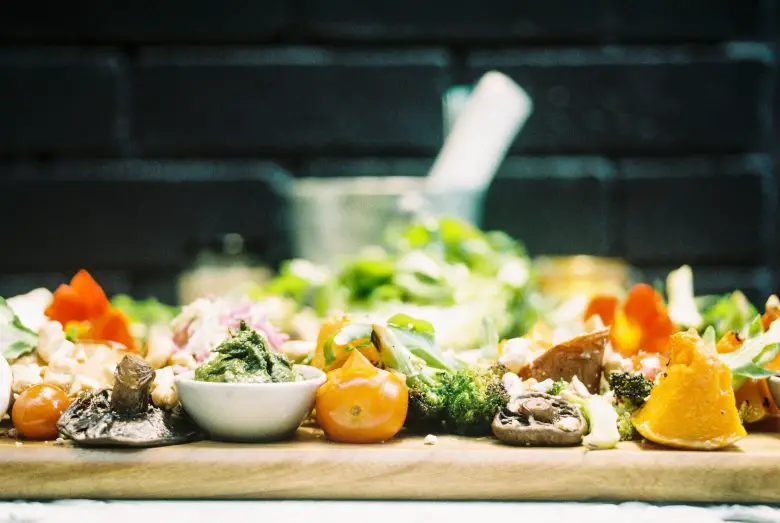Food waste is a major issue in the restaurant industry, as a large amount of food goes to waste every day. This wasted food not only harms the restaurant’s bottom line, but also adds to the problem of food waste and environmental pollution in our society. However, restaurant owners can take steps to reduce their food waste by implementing food waste recycling. Through food waste recycling, restaurants can not only cut down on their costs but also create a more sustainable and eco-friendly environment. In this post, we will take a look at how restaurant owners can recycle their food waste and the potential benefits they can gain from doing so.
Restaurant food waste recycling is the process of sending food waste to a facility, such as a composting plant, to be recycled and used as fertiliser. This process helps to reduce the amount of food waste generated by restaurants, and provides an environmental benefit by reducing the amount of organic matter entering landfills. Additionally, the compost created from the recycled food waste can be used as a nutrient-rich fertiliser for agricultural and gardening purposes, further reducing the environmental impact of restaurant food waste.
What is Restaurant Food Waste Recycling?
Restaurant food waste recycling is the practice of converting food waste from restaurants into usable, renewable energy resources. This resource can be anything from compost, to biofuel, to landfills. Restaurants generate a lot of waste in the form of food scraps, serving containers, cooking oil, and other such materials. The more we as a society can find ways to recycle and repurpose this waste, the more efficient and sustainable our industry will be.
How Does Restaurant Food Waste Recycling Work?
The process of restaurant food waste recycling starts with collection. Usually a local waste management company will pick up the food waste from the restaurant on a set schedule. This waste is then transported to the recycling center, where it is sorted and processed. Depending on the waste, the food scraps may be converted into compost or methane, or the cooking oil may be turned into biodiesel. Once the waste has been converted into usable resources, it can be used for various purposes, from fertilizer to renewable energy.
Benefits of Restaurant Food Waste Recycling
Reduction of Food Waste
By recycling restaurant food waste, we can reduce the amount of food waste that ends up in landfills. Food waste is one of the leading causes of greenhouse gas emissions, making it extremely important to manage this waste responsibly. By reducing the amount of food waste going to landfills, we can help mitigate the effects of climate change.
Reduction of Costs
Having a food waste recycling program in place can also help restaurants save on disposal costs. Instead of paying for waste removal, restaurants can turn their food waste into usable resources, helping them reduce their costs. Additionally, the energy resources that can be generated from the food waste can be sold, giving restaurants an extra source of income.
Promoting Sustainability
Finally, food waste recycling can be a great way to promote sustainability. By reducing the amount of food waste going to landfills, we are reducing the burden on our natural resources. Additionally, by converting food waste into energy resources, we are creating a more sustainable energy system, helping us transition away from our reliance on fossil fuels.
Conclusion
Food waste recycling is an important part of creating a sustainable, green society. By reducing the amount of food waste that goes to landfills, we can help reduce the impact of climate change. Additionally, food waste recycling can help restaurants save on costs and generate an extra source of income. Overall, restaurant food waste recycling is a great way to promote sustainability and reduce our reliance on unsustainable energy sources.
Frequently Asked Questions
What is Restaurant Food Waste Recycling?
Restaurant food waste recycling is the process of using leftover food from restaurants and turning it into compost or fertilizer for agricultural use. It helps to reduce landfill waste and replenish essential nutrients for food production.
How is it Beneficial?
It reduces the amount of waste going to landfills, helps minimize the environmental impact of restaurants, and provides organic fertilizer for agricultural use. It is cost-effective and contributes to the sustainability of the restaurant industry.
How Does it Work?
Restaurants collect their food waste, such as peels, trimmings, and leftover food, and separate them according to organic and non-organic waste. The organic waste is sent to a composting facility or biodigester where it is broken down into organic fertilizer. Non-organic waste is disposed of in the normal waste system.
Are there Regulations that Need to be Followed?
Yes, restaurants must adhere to local and state regulations regarding the safe disposal of food waste. They must also be aware of the health and safety risks associated with composting, such as ensuring that there is no contamination of food sources.
What Types of Materials Can be Recycled?
Almost any type of food waste can be recycled, from meats, cheeses, and fats to fruits, vegetables, and grains. Restaurants can also recycle cooking oil, cardboard, and other materials.




